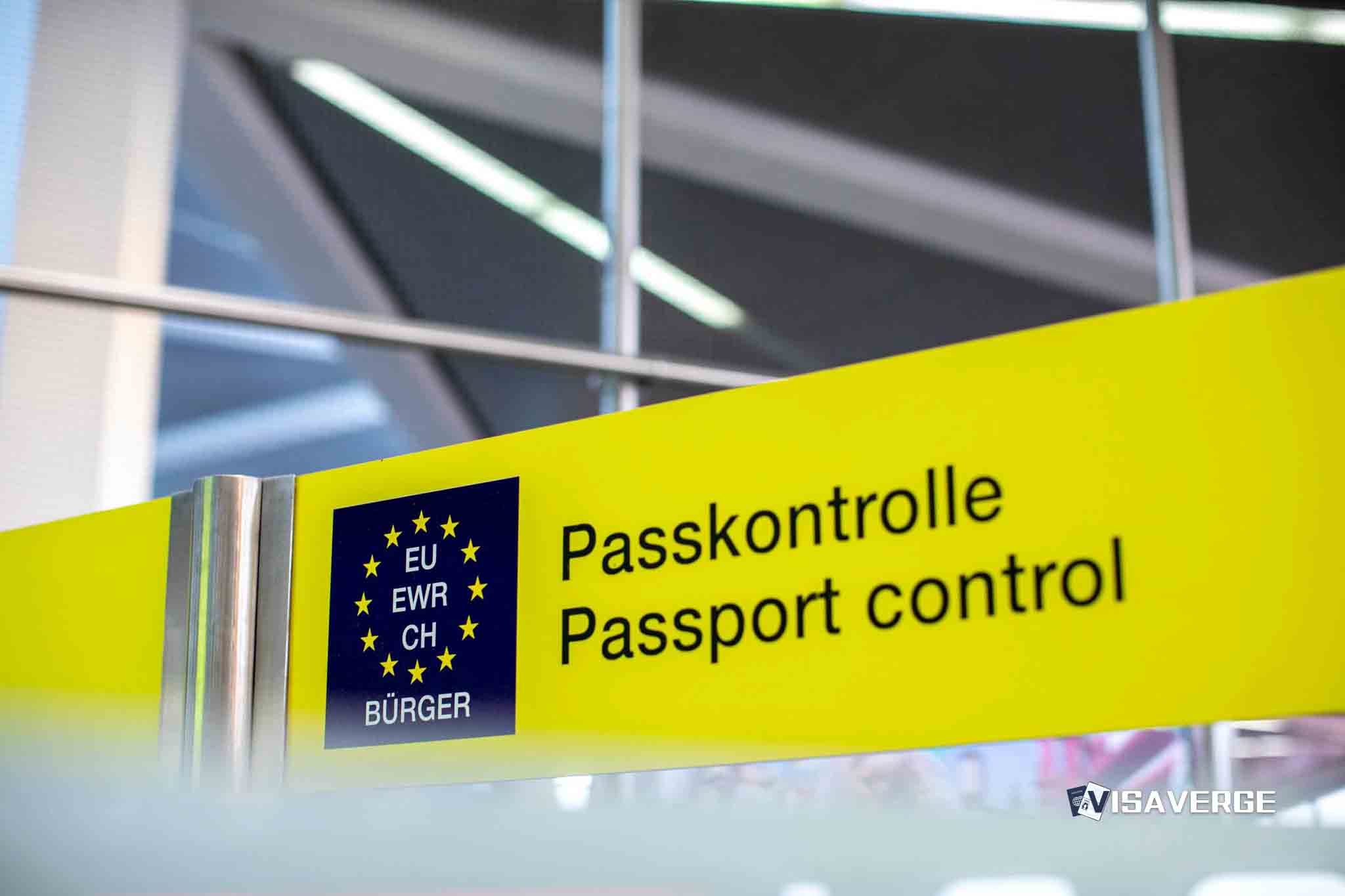Navigating the Waters Post-Brexit: The UK Technology Sector’s New Reality
The reverberations of Brexit are being felt far and wide, with one of the most dynamic sectors—the UK’s technology and IT industry—not immune to its impacts. As Britain continues to charter its course outside the European Union, it’s crucial to understand the new landscape for the tech industry and the various IT industry challenges in the UK after Brexit.
Brexit Impacts: A New Employment Landscape
Brexit has significantly affected the movement of people, particularly skilled workers, between the UK and the EU. The change in immigration laws means that the once seamless process for EU nationals to live and work in the UK has become more complex. Now, EU citizens need to navigate the points-based immigration system, similar to other international workers. This system assesses individuals based on skills, salaries, and qualifications, among other criteria.
For authoritative advice on travel conditions and visa rules, it’s always best to consult the official UK government immigration website: UK Visa and Immigration.
The UK Technology Sector Post-Brexit: Adjusting to Change
The UK technology sector, known for its dynamism and innovation, now faces a new set of challenges:
- Reduced access to European talent: With freedom of movement no longer a given, UK companies may find it harder to attract the necessary skills from Europe.
- Uncertainty over data transfer regulations: The tech industry often relies on the seamless transfer of data. Post-Brexit, there’s a need for new agreements to ensure the continued flow of data between the UK and EU.
- Investment concerns: Brexit has fostered uncertainty, which can affect the confidence of investors in the UK technology sector.
What Does This Mean for Non-UK Tech Professionals?
For tech professionals outside of the UK looking to work in the British IT industry, the changes mean they must comply with the new immigration rules. Highly skilled IT professionals may have an edge in the points-based system, but securing a work visa now requires sponsorship from a UK employer.
Interested individuals can explore the Global Talent Visa, designed specifically for leaders and potential leaders in digital technology.
The Response of the UK Tech Sector to Post-Brexit Challenges
Despite the challenges, the UK technology sector remains robust and resilient:
- Innovation in response to talent shortages: UK companies are finding new ways to source and nurture talent, including apprenticeship schemes and in-house training.
- Encouraging domestic investment: By focusing on developing homegrown talent and infrastructure, the UK aims to remain a competitive tech hub.
Anticipated Growth in UK Technology Post-Brexit
Opportunities still abound in the UK technology sector post-Brexit. With the right strategies and policies in place, the UK can maintain its reputation as a leading tech hub. This includes investing in education and digital skills, creating an attractive business environment, and fostering global partnerships.
Final Thoughts
Brexit has undeniably presented a unique set of challenges for the UK’s technology and IT sectors. However, with change comes the opportunity for innovation and adaptation. For tech professionals around the world, the UK continues to be a land of potential—albeit with a few more immigration rules to navigate. Achieving success in this new era will depend on how well the UK and its tech community can turn these IT industry challenges into opportunities for growth and development.
Expert Insights
Did You Know?
- The UK’s technology sector heavily relies on international talent, with approximately one-third of the workforce in the industry being foreign-born.
- In 2020, the UK approved over 4,000 applications for the Global Talent Visa, highlighting the country’s continued interest in attracting top digital technology leaders.
- The immigration changes post-Brexit not only affect EU citizens but also non-EU citizens who previously benefited from free movement regulations.
- While there is a focus on attracting highly skilled workers, the UK’s new points-based system also provides opportunities for entrepreneurs and investors in the tech sector.
- The UK is home to some of the world’s leading tech clusters, including London, Manchester, and Cambridge, which continue to attract global talent despite Brexit.
- Brexit has prompted an increase in remote working opportunities, allowing tech professionals to collaborate with UK companies without physically relocating.
- The UK government has introduced a Startup Visa scheme to encourage foreign entrepreneurs to start innovative businesses in the country, further promoting diversity and innovation in the tech sector.
- The tech industry plays a crucial role in driving economic growth, with studies showing that every tech job created in the UK results in the creation of around five additional jobs in other sectors.
- The UK has established Tech Nation Visa Alumni, a network of successful tech entrepreneurs who have previously received global talent visas, providing a supportive community for newcomers.
- Despite the challenges posed by Brexit, the UK remains one of the most vibrant and influential technology ecosystems globally, attracting investment and fostering innovation.
Learn today
Glossary
- Brexit: The withdrawal of the United Kingdom (UK) from the European Union (EU), resulting in the UK becoming an independent nation outside of the EU.
- Immigration laws: A set of rules and regulations established by a country to regulate the entry and stay of foreign nationals within its borders.
-
Points-based immigration system: A system used to evaluate and assess individuals applying for immigration based on predetermined criteria, such as skills, qualifications, salaries, and other factors.
-
UK government immigration website: The official website managed by the UK government providing information and guidance on travel conditions, visa rules, and related immigration matters.
-
Freedom of movement: The principle within the EU that allows citizens of member states to live, work, and study in any other member state without the need for visas or work permits.
-
European talent: Skilled workers from European Union member states who possess the necessary skills and qualifications that the UK technology sector may require.
-
Data transfer regulations: Rules and agreements governing the transfer of data between countries, ensuring data protection, privacy, and security.
-
Work visa: A document issued by a country’s immigration authority that grants permission for a foreign national to work in that country for a specific period.
-
Sponsorship: The act of a UK employer providing support and vouching for a non-UK tech professional to work in the UK by sponsoring their work visa application.
-
Global Talent Visa: A specific visa category designed for leaders and potential leaders in digital technology, allowing them to work in the UK without requiring sponsorship from a UK employer.
-
Apprenticeship schemes: Programs that combine on-the-job training with classroom instruction, enabling individuals to learn a specific trade or profession while earning a salary.
-
Homegrown talent: Tech professionals who are UK citizens or residents and have acquired their skills and qualifications within the UK itself.
-
Tech hub: A location that fosters innovation, growth, and collaboration in the technology sector, attracting companies, investors, and talent.
-
Digital skills: Proficiency and knowledge in areas related to digital technology, such as programming, data analysis, cybersecurity, and artificial intelligence.
-
Global partnerships: Collaborative relationships between the UK technology sector and international organizations, companies, and governments to promote innovation, investment, and knowledge sharing.
-
Growth and development: The expansion and advancement of the UK technology sector through increased investment, innovation, and the nurturing of talent.
So there you have it, my tech-savvy friend! Brexit has definitely stirred things up in the UK tech sector, but fear not! With a sprinkle of innovation and a dash of resilience, the industry is adapting to the new reality. If you’re thirsty for more insight on this topic (and who wouldn’t be?), head on over to visaverge.com for all the juicy details. Happy exploring!
FAQ’s to know:
FAQ 1: What are the challenges faced by the UK technology sector after Brexit?
The UK technology sector faces several challenges after Brexit, including reduced access to European talent, uncertainty over data transfer regulations, and concerns over investment.
FAQ 2: How has Brexit affected immigration for non-UK tech professionals?
Brexit has impacted immigration for non-UK tech professionals. They must now comply with new immigration rules, requiring sponsorship from a UK employer to secure a work visa. The points-based system gives an advantage to highly skilled IT professionals, and the Global Talent Visa is available for leaders in digital technology.
FAQ 3: How is the UK tech sector responding to the challenges of Brexit?
The UK tech sector is responding to the challenges of Brexit by innovating to address talent shortages, investing in homegrown talent, and infrastructure, and encouraging domestic investment. These strategies aim to maintain the UK’s position as a leading tech hub.
What did you learn? Answer below to know:
-
True or False: The UK technology sector may face difficulty attracting skilled workers from Europe due to changes in immigration laws and freedom of movement after Brexit.
-
What is a key challenge for the UK technology sector post-Brexit in terms of data transfer?
-
Which visa category is specifically designed for leaders and potential leaders in digital technology who want to work in the UK?














